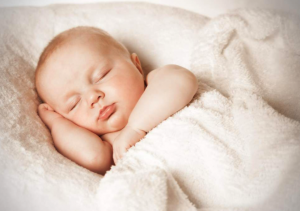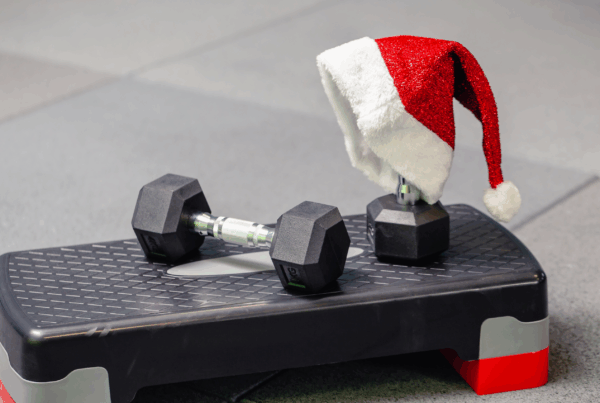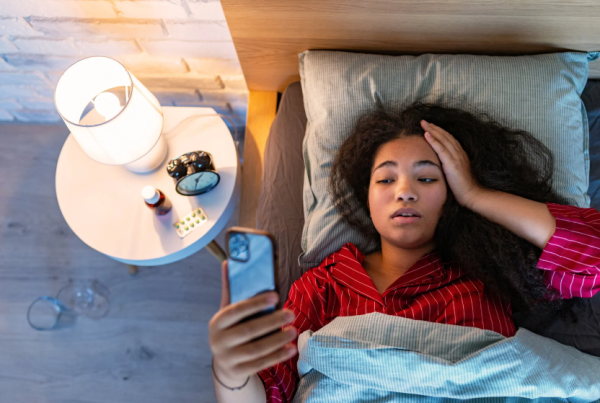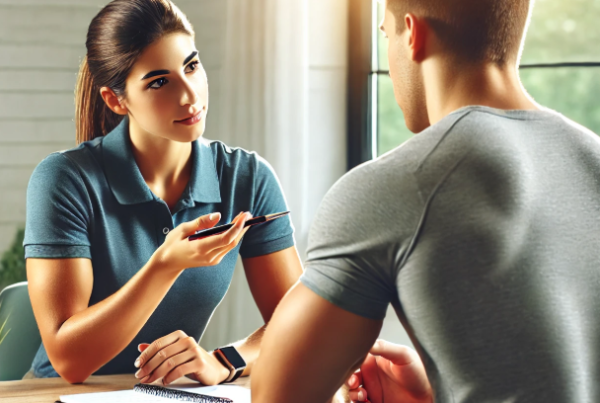What’s your sleep score?
“Sleep Hygiene” seems to be the new kid on the block when talking holistic health. We did some digging around Health and Medical Research Journals to find out more and here’s what we found….
“But I feel fine, why is Sleep Hygiene and Sleep important to health?”
Poor quality of sleep is associated with impairments in motivation, emotion, and cognitive functioning as well as increased risk for serious medical conditions such as lowered immune system, diabetes, cardiovascular disease and cancer.
Sleep is the best time for your body to recover. Growth Hormone spikes when you’re asleep and so do the hormones Prolactin and Melatonin which are potent (and natural and free!) antioxidants. Plus, sleeping allows the brain a chance to get rid of metabolic waste accumulated around the brain (That’s right! Like any metabolic reaction inside the body there are by-products).
Still feel fine? Maybe you could feel even better, and you don’t even know it yet!
How is your Sleep Hygiene? Take the Quiz below!
Scoring: Yes = 0 No = 1
Question Score
1. Stimulants
Do you drink caffeinated beverages within 7 hours of bed-time? Do you smoke or Vape? Are you frequently exposed to Second-Hand Smoke?
2. Alcohol
Do you drink alcohol within 6 hours before bed-time?
3. Granny Naps
Do you nap throughout the day?
4. Irregular bedtime or waking time
Do you go to bed or wake up at different times each day?
5. Wind-down routine
Do you go to bed emotionally or intellectually stimulated?
6. Exercise
Do you get less than 30 minutes of exercise a day,5 days per week?
7. Nutrition
Do you think your diet could be substantially better? (to include a balanced diet of some fruit, plenty of vegetables, sufficient protein and some grains)
8. Stress
Are you stressed throughout the day, even before bed-time?
9. Noise Pollution
Do you hear a lot of noise from your bedroom (traffic, hum of fridge)?
10. Light Pollution
Is there light in your room (from electronics, or street lights)? Are you exposed to a lot of artificial light within 2 hours before bed-time (from screens and light bulbs)?
How did you score?
10/10 is a perfect score! Not much more you can do to improve your Sleep Hygiene.
If you scored 10/10 yet still experience poor sleep or are frequently tired you may need to speak to your GP or another health professional.
Result Interpretation*
*Completely Invented by me
10 – Sleep ninja! (Pro!)
7-9 – Sleep Student (Learning Mastery, keep it up!)
4-6 – Agnostic Sleeper (Yet to trust in the power of sleep)
0-3 – Sleep Squirrel (Sleep is for the dead?)
Want to score higher next time you review your Sleep Score?! Here’s how:
1. Stimulants
Research shows stimulants such as caffeine and nicotine significantly impact our sleep quality. This is because they are stimulants; they act on neurotransmitters (brain chemicals) in the brain to keep us alert.
Caffeine levels peaks after 30 minutes of consumption, so definitely no caffeine to be used as a night cap! The research states the half-life to be 3-7 hours, depending on the individual. Which means the amount circulating in your blood stream is still half the amount of its peak level.
Quitting coffee can result in withdrawal symptoms, so do take care. It should take 3-4 days to pass however if you are concerned, always see your GP.
Disclaimer! There’s actually been an adenosine (neurotransmitter) receptor gene associated with caffeine sensitivity… apparently there are people who exist that are caffeine-insensitive! (I am not one of them!). However, the best way to determine your level of sensitivity is to go without caffeine for a week or two, and then bring it back to monitor your alertness and sleep quality, so give yourself an extra point in a few weeks if you determine yourself to be a caffeine-mutant.
Nicotine is also a stimulant and we couldn’t find any specific information indicating it’s ok at any time of day (compared to caffeine). Even second-hand smoke influences sleep quality. All types of nicotine consumption were associated with poorer sleep; however, cigarettes were the worst due to all the other chemicals they contain as well.
Quitting nicotine in order to improve your sleep quality (and probably lung health) is a good idea. However, you should do this under the supervision of your GP, if you go cold turkey, withdrawal symptoms can actually worsen sleep for a few weeks.
2. Alcohol
Alcohol may help us to get to sleep, however research using EEG (electrocorticography) has shown it actually worsens our sleep quality, also acting on a variety of neurotransmitters. It is recommended to cease alcohol consumption 1 hour before going to bed, some research suggests 6 hours.
– Yes the quiz was misleading… Innocently trying to spike your curiosity!…
…So if you want an extra point for consuming alcohol more than 1 hour before bed, the point is all yours. No binge drinking! The health guidelines stipulate 1-2 alcoholic drinks per day, with at least one day without.
3. Granny Naps
Taking naps throughout the day has been shown to decrease sleep quality throughout the night. Napping can assist clarity if you’re just feeling too tired however your nap should be limited to 30 minutes.
4. Irregular bedtime or waking time
Keeping to a regular bed time or waking time makes it easier for our body to maintain a regular circadian rhythm.
Research indicated that a regular waking-time was more important, so if you have to pick one, pick what time you’re going to wake up and stick to it. Genetics does effect sleep-timing (Chronotype). Find what’s best for you.
5. Wind-down routine
If you go to bed emotionally or intellectually stimulated… you are stimulated! For example, watching scary t.v., working or being involved in conflict. This is not an ideal state for relaxation or rest!
Tips for wind-down routine:
– Try meditation or mindfulness
– Stretch
– Bathe or shower (this actually helps your body find a good temperature for sleeping as well)
– Non-caffeinated tea
– Read something that isn’t too stimulating
6. Exercise
The recommended exercise levels for general health is: at least, 30 minutes of moderate aerobic exercise, 5 times per week and 2-3 strength training sessions.
Exercise 4-8 hours before bedtime can help sleep quality because of the effect on the body temperature as well as neurotransmitters and hormones, as well as decreasing stress! 1 hour of exercise (any type) was shown to have the best results.
The more muscle mass you have the more sleep neurotransmitters you have in your blood stream. Do you even lift bro?
Some people may be susceptible to increased stimulation if they exercise too close to bed-time.
Have injuries, illnesses, or just not sure where to start? See an Accredited Exercise Physiologist (I know some good ones )
7. Nutrition
A well-balanced diet increases the production of melatonin (our sleeping hormone). This is because EVERYTHING in our body is synthesized from the ingredients we feed it.
Being over-weight is also correlated with less Melatonin. And so is restricting your calorie intake! Confusing huh! It’s a fine balance. Work with your Dietician or Nutritionist for best results.
8. Stress
Stress is a stimulant! It increases your sympathetic nervous symptom actions including heart rate and blood pressure among other things.
Tips for Stress and Sleep:
– Meditation or mindfulness
– Diary
– Exercise
– Nutrition
– Enjoyable social activities
If you feel very overwhelmed, or if you’re friends/family/co-workers are worried about you, speak to your GP and/or find a Psychologist.
9. Noise Pollution
Noises such as outside traffic, annoying neighbors or even the hum of fridge can decrease sleep quality. This is because our brain is switched on and ready to look out for danger.
Tips:
– Ear plugs
– Sound proofing
– DON’T: get into a fight with your neighbour, but maybe you can ask them nicely to be quieter during normal sleeping hours.
10. Light Pollution
Blue light from computer screens, tablets and phone as well as LED or Fluorescent light bulbs decrease our Melatonin (Sleeping-hormone). Even artificial light from outside or inside the bed-room can affect us. The darker the better!
Speaking of light, Vitamin D deficiency is associated with poor sleep as well, so make sure you’re getting some sun shine into your day (10-15 minutes for average Caucasian skin, less if you’re from Ye Olde’ England and more for darker skin), just don’t get burnt!
Tips:
– Download a blue light blocker on to your device, use 1-2 hours before bed time
– Find some blue light blocker glasses (red lenses), use 1-2 hours before bed time. I have some.
They’re stylish.
Ok… I get teased…
But maybe if we all do it we can head a new fashion?
– Dim the lights
– Get romantic and use candle light. *Caution, candles include live flames, use safely.
– Use incandescent and halogen light bulbs
– Effective blinds and curtains in the bedroom
– Eye mask
– Get some sunshine in to brighten your day
11. Other cool facts
– Find a comfortable temperature in bed. You may need to play around with bed covers, pyjama materials, air flow etc.
– Have a comfortable mattress/pillow.
I think I’ve covered everything. If you got to bottom of this without falling asleep, well done! If you have any other tips or questions let us know!!
Happy Sleeping!
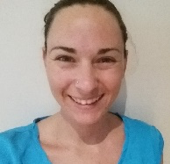
Biara Webster
Accredited Exercise Physiologist, Specialised Health
REFERENCES
Irish et al., The Role of Sleep Hygiene in Promoting Public Health: A Review of Empirical Evidence, Sleep Med Rev. 2015 August ; 22: 23–36. doi:10.1016/j.smrv.2014.10.001
The effects of programmed air temperature changes on sleep quality and energy saving in bedroom , DOI: 10.1016/j.enbuild.2016.08.001
https://www.webmd.com/sleep-disorders/features/cant-sleep-adjust-the-temperature#2
https://sleepfoundation.org/sleep-disorders-problems
Katri Peuhkuri*,Dietary factors and fluctuating levels of Melatonin, Institute of Biomedicine, Pharmacology, Medical Nutrition Physiology, University of Helsinki, Helsinki, Finland
Edward J. Stepanski and James K. Wyatt (2003) Use of sleep hygiene in the treatment of insomnia, Sleep Medicine Reviews, Vol. 7, No. 3, pp 215±225, 2003
Chennaoui (2015), Sleep and exercise: A reciprocal issue?, Sleep Medicine Reviews 20 (2015) 59e72
Vollmer and Randler (2015) Sleep duration and chronotype in adults in Côte d’Ivoire: influence of gender, religion and age Journal of Psychology in Africa · August 2015
WHO technical meeting on sleep and health (2004)
Blue light from light-emitting diodes elicits a dose-dependent suppression ofmelatonin in humans, Appl Physiol 110: 619– 626, 2011.
http://onlinelibrary.wiley.com/doi/10.1111/j.0889-7204.2004.02422.x/abstract[/vc_column_text][/vc_column][/vc_row]
